It’s long overdue, but it’s time to rank all the mainline Dragon Quest games that have been released so far.
Few game series have the fame and wide spread appeal that Dragon Quest enjoys. An RPG series stretching back three decades with talents the likes of Akira Toriyama tied to its creation and continued innovations, it has entertained gamers for years with tales of chosen heroes overcoming untold evils with the help of lovable party companions. As with any series, though, some entries proved better than others, and we’ve got all 11 mainline entries ranked from fine to phenomenal.
it’s worth noting that this ranking will not include the side and spin-off games like Dragon Quest Builders and Builders II which, while still awesome, aren’t exactly comparable to the big JRPG adventures of the main games.
The Best Dragon Quest Games, Ranked From Fine to Phenomenal
11. Dragon Quest X
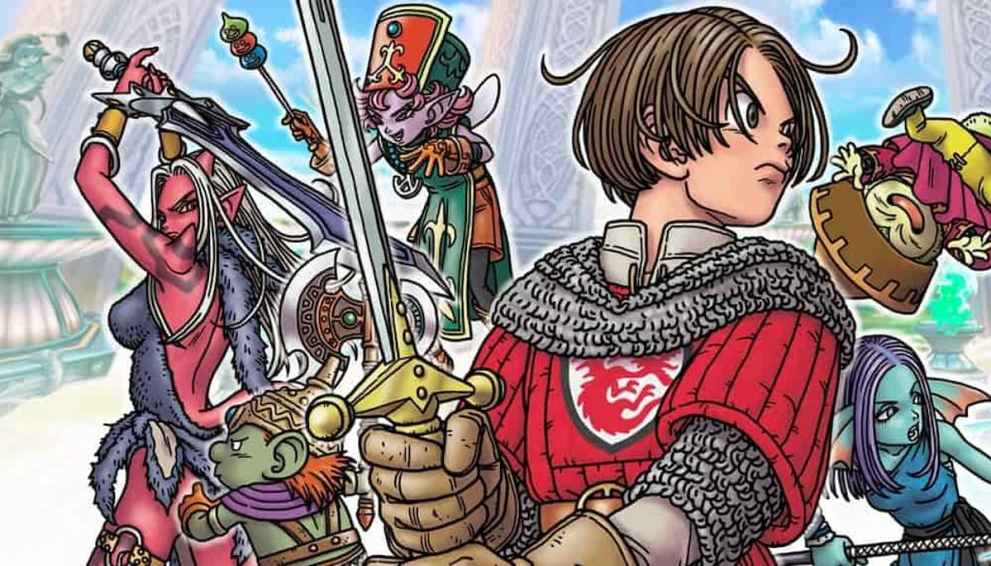
The first entry in the series to make the leap to the MMORPG genre, Dragon Quest X allowed fans to come together to form their own parties with one another, complete a variety of quests, and take on monsters new and old across the world for fame and glory. Not only that, but it allowed players to take full advantage of the expansive lore the series had built up over the years with a wide array of character classes and races to choose from.
From chosen human warriors to powerful demons, angelic beings to magical underwater denizens, the chance for taking on a new role within the series has never been greater, and it can be easy to lose oneself within the title’s adventures.
Unfortunately, the game also saw the most limited release in the series, only available in Japan and now potentially in China. The reason for this has been said to be the difficulties multiple servers would present, and that Square Enix would prefer to keep the title contained to its already sizable audience in Japan. There’s still some hope for a port if demand is high enough, but it’s highly likely most will only see this title through online streams and lets plays.
10. Dragon Quest IX: Sentinels of the Starry Skies

After the seminal release that was the series’ eighth entry, Square Enix struck out in a new direction with Sentinels of the Starry Skies, telling the tale of a wrongfully fallen angel looking to return to the heavens above. Offering more choice to players in terms of character creation, it allowed for the creation and optimization of a character’s appearance, class, and abilities throughout the entire title.
If one wanted to take on the game with a team of chrome-domed monks, they could; or if they wanted a quartet of sword wielding warriors, they could do so and strike out upon the world. This was all set against the usual charm and appeal of the game’s art design, sound work and turn-based gameplay, making for a top-notch JRPG experience.
As a result, though, there wasn’t nearly as much time or effort invested in the development of the main characters or their stake in the adventure. Sure, some backstory was given to the main character and how he came to embark on a quest to return to the heavens, but the rest of the party was made up by created characters with no real stake in the narrative. It doesn’t kill the experience by a long shot, but in a series with such a pedigree for great character writing, it is a bit of a let down.
9. Dragon Quest

The game that started it all, Dragon Quest stands toe to toe with the legendary JRPGs of old. Dropping players into an 8-bit world of mythical monsters, fantastical spells and a quest to save the land from evil, it hits all of the right notes needed to engross players in a fantasy epic and provides a framework for future titles to follow. Not only that, but the iconic designs of Akira Toriyama are front and center, breathing a sense of character into the game which would become a trademark in the entries that followed.
The only downside is, the game is most certainly a relic of its time. From graphical fidelity and the flow of gameplay to quality of life elements such as distance between save points and difficulty spikes, a lot of the game was improved upon substantially in future entries and makes going back to the beginning difficult. Regardless, it’s the kind of title that deserves to be played for its influence on the industry and should provide something for those who want to experience a classic.
8. Dragon Quest II: Luminaries of the Legendary Line

Following the success of the first title, the creators of the Dragon Quest series set to work to improve, refine, and polish the gameplay and structure of the original for a sequel that would live up to its initial potential. The result was Dragon Quest II, a tale of chosen heroes venturing forth to save the world from darkness and a decided improvement on the original, with more than a few steps forward for the series as a whole.
The world felt bigger, the gameplay felt smoother, and the fantasy elements now meshed seamlessly with the Akira Toriyama’s art style. Likewise, the music and sound work came into its own, breathing life into each new step taken in the over-world and each harrowing encounter with enemies.
That said, the game also padded its run time with an increased difficulty curve, and some still look to this title as one of, if not the, hardest titles in the series, and can be one of the most difficult to go back to for even diehard fans.
7. Dragon Quest V: Hand of the Heavenly Bride
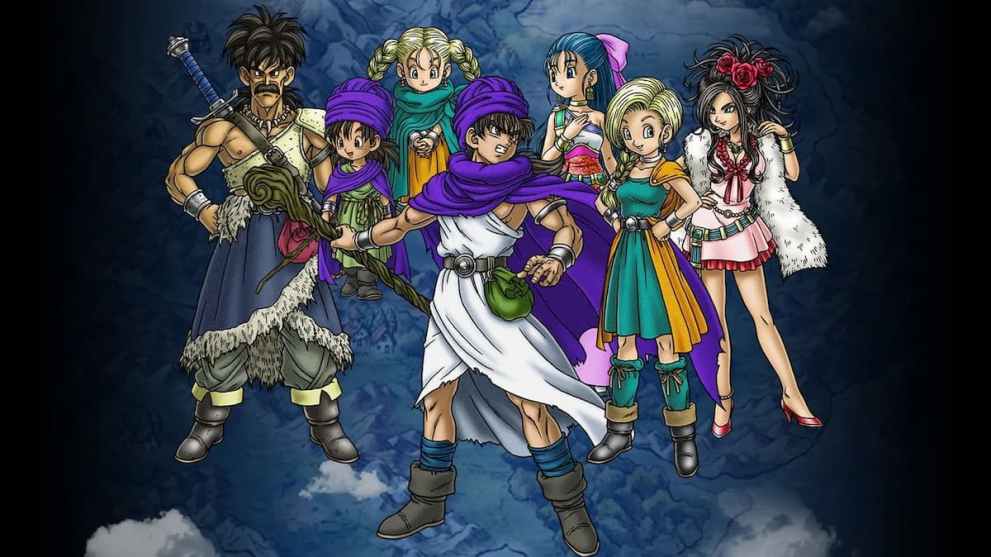
A heroic tale told across decades, Dragon Quest V: Hand of the Heavenly Bride was an inarguably ambitious title in the series. Taking the role of a young prince in hiding, players are tasked with setting out to find the dark figure who murdered his mother and father. Along the way, they enlist the help of a number of different companions from a similarly displaced heir to royalty to friends from years passed who now hold a spark of romance. The choice is left to the player in how to respond to their relationships with these characters, and based on them, many elements of the late-game can be altered to the player’s benefit or chagrin.
This design style, and focus on the relationships built up by players over the course of the game, is an interesting design choice, and one that largely pays off. There are still some lingering issues from early entries in the series – namely difficulty spikes and some lack of direction in where to go next – but overall, it makes for a strong indicator of what’s to come in future installments.
6. Dragon Quest IV: Chapters of the Chosen
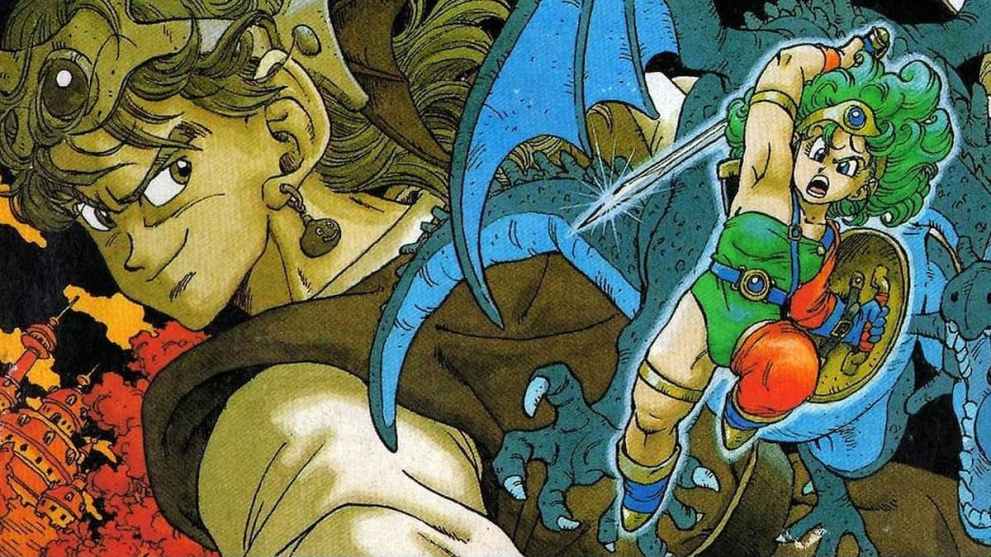
The final entry in the series to appear on the NES, Dragon Quest IV brought the series forward in a lot of ways. Not only did it tell one of the series’ most expansive stories, fleshing out the backgrounds of almost every party member, in addition to the player character for a typical world-saving adventure, but it also provided gameplay maximized for the system the series had become a staple for. Difficulty felt balanced, enemies were varied and the world was one which players couldn’t wait to explore more of, uncovering long lost secrets and valuable treasures.
Of course, there was only so much the series could do on the NES, and with the release of future installments, it only became more obvious. That said, the game is still one which did wonders with what was able to it, and still stands as one of the best in terms of character development to this day.
5. Dragon Quest III: The Seeds of Salvation
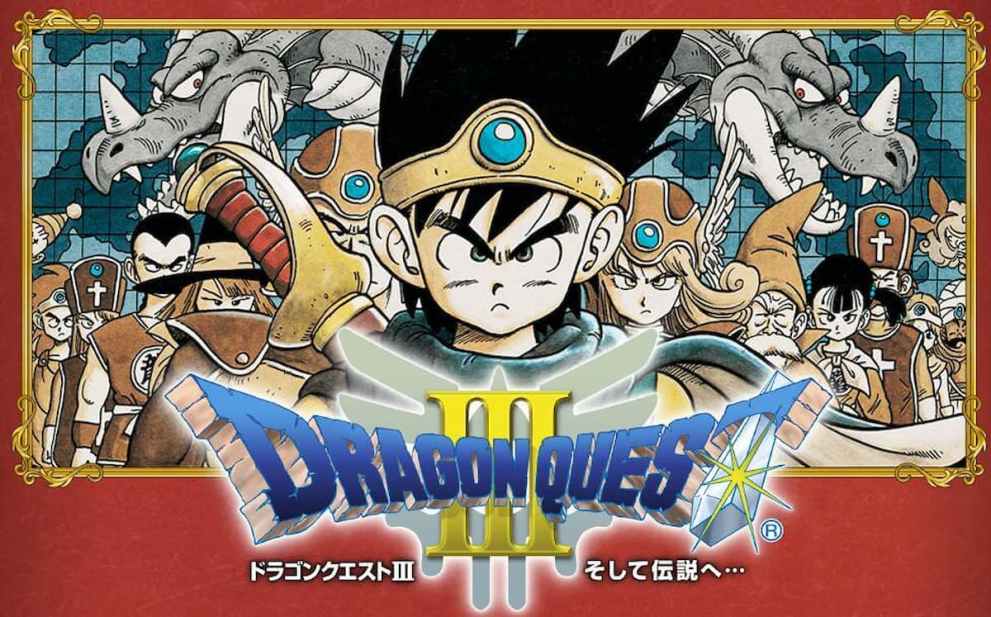
Following the first two entries in the series, the team behind the iconic series had learned quite a bit and were ready to show it with the next entry in the series. They didn’t disappoint either; Dragon Quest III: The Seeds of Salvation marked a high point for the series, delivering one of the best classic JRPG experiences around.
Gameplay felt smooth and well-balanced, and allowed for more player optimization with the introduction of a class system. The story was clear and well-handled, and almost every aspect from its art to its music meshed perfectly for a gaming experience many were happy to lose themselves in.
Some still tout it as one of the greatest RPGs of all time, right up there with Final Fantasy VI and Chrono Trigger. The series may have grown to even larger heights following this title, but that doesn’t diminish its accomplishments or how highly it soared.
4. Dragon Quest VII: Fragments of the Forgotten Past
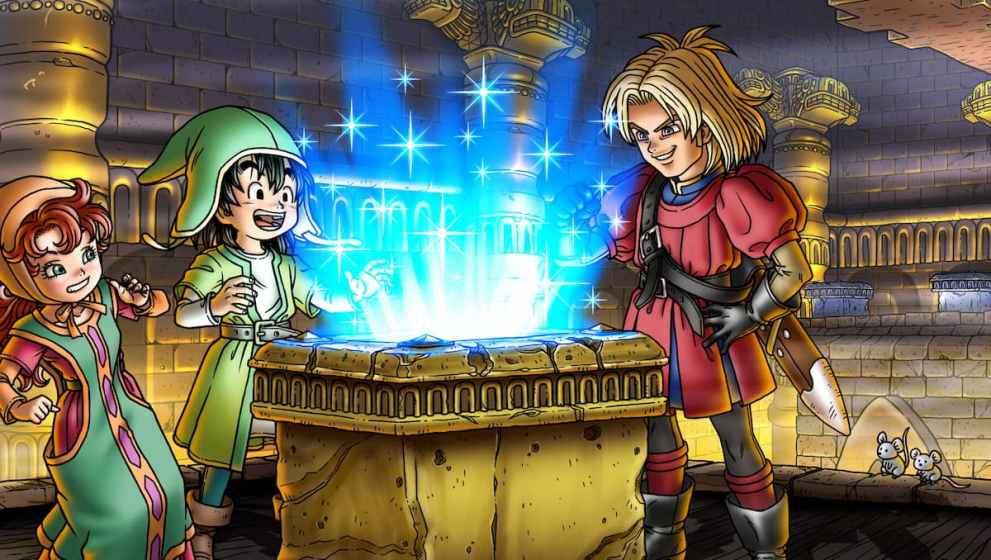
Following a lengthy hiatus from releases, Dragon Quest came back strong with the release of its seventh entry, Fragments of the Forgotten Past, on the PlayStation. Taking the role of an intrepid hero, players are tasked with venturing out to islands surrounding the heroes home alongside their lifelong friends. Through the use of ancient ruins, they travel to the far gone pasts of each locale, tracking down evil to vanquish it and return peace to the present day.
One of the most expansive entries in the series, Fragments of the Forgotten Past took many of the aspects that made the series a standout among the JRPG genre and translated them beautifully for the growing video game audience of the late ’90s and early 2000s. It could admittedly be a bit intimidating when one considers the game takes well over 100 hours to complete thanks to its wealth of side content, but almost all of it is hard not to enjoy thanks to the quirky cast of characters, engrossing class system, and gorgeous aesthetics.
3. Dragon Quest VI: Realms of Revelation

The SNES generation was good to many series, and Dragon Quest was most certainly one of them. After the release of Hand of the Heavenly Bride, players were treated to Realms of Revelation, an undeniable step up and an entry still held in high regard to this day.
As the chosen hero of the world, players must gather their lost comrades after a sinister villain separates them and curses them with amnesia for good measure. To do this, they’ll have to journey across not only the world they live in, but also into another realm on the edge of their known reality. Each holds countless secrets, dangers and treasures for them to uncover, and by the journey’s end, most will have eagerly sought out them all.
Though it does enjoy playing off of typical JRPG tropes, the game does so much right that it’s hard not to enjoy the ride regardless. Plus, thanks to localization and re-release efforts in recent years, it’s never been easier to dive into the phenomenal title.
2. Dragon Quest XI: Echoes of an Elusive Age

The most recent entry in the long running series, Dragon Quest XI: Echoes of an Elusive Age is undoubtedly exactly what the series needed to provide in the current console generation. Taking all of the classic JRPG systems and gameplay and then streamlining them to make it accessible to old fans and newcomers alike, it offers a gaming experience few wouldn’t be able to lose themselves in for hours and hours on end.
The combat is visceral while tactical, the characters are emotive and interesting, and the world comes to life with each new area discovered and each new melody heard in the background. Even the story, which leans heavily on JRPG tropes, still has its moments of stand out quality, and few will want to miss what this title has to offer.
Bonus Entry: Dragon Quest XI S: Echoes of an Elusive Age
Before we get to our number one pick, we wanted to give a special shoutout to Dragon Quest XI S: Echoes of an Elusive Age. This is a re-release of Dragon Quest XI for the Switch, which came packed with so much additional content that it almost felt like a brand new experience.
The music, which was the number one complaint with the original game, finally got an in-game orchestral arrangement. Plus, if you hated DQ XI’s music, you could swap it out for DQ VIII’s soundtrack instead, which is of course the superior choice.
Most importantly, this version of the game also got hours and hours of new post-game content which helped to flesh out the relationships between the protagonists and the party members even further. The original game was great in its own right, but Dragon Quest XI S is certainly the definitive edition of the game, and newcomers should jump straight into this one if they’re looking to get started with the series.
1. Dragon Quest VIII: Journey of the Cursed King
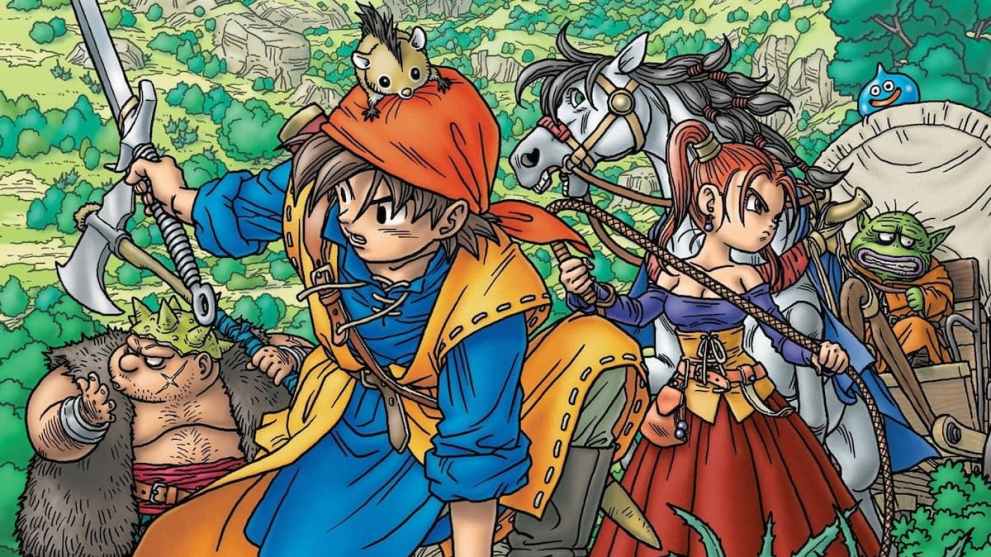
It’s hard to describe just how great this game is. Released during the renaissance of the JRPG genre that was the PlayStation 2 console generation, Dragon Quest VIII stood as one of the best even among releases from titans like Final Fantasy, Persona, and so many more. In it, players take the role of a castle guard spared from a curse laid upon his king and kingdom, rendering its rulers to live out their days in cursed and monstrous bodies.
To this end, the player must venture forth across the world, gathering fellow unlikely heroes to their cause and running down the dark forces that destroyed their kingdom and threaten to do the same to the rest of the world.
A gorgeous realization of everything great about the series and its genre, this is the game to play if you want to see what makes the series as great as it is. It’s a one of a kind experience, and one you won’t regret taking part in to the very end.
For more on all things Dragon Quest, check out our review of the most recent entry, Dragon Quest XI, as well as a feature on how it’s the most accessible in the franchise.

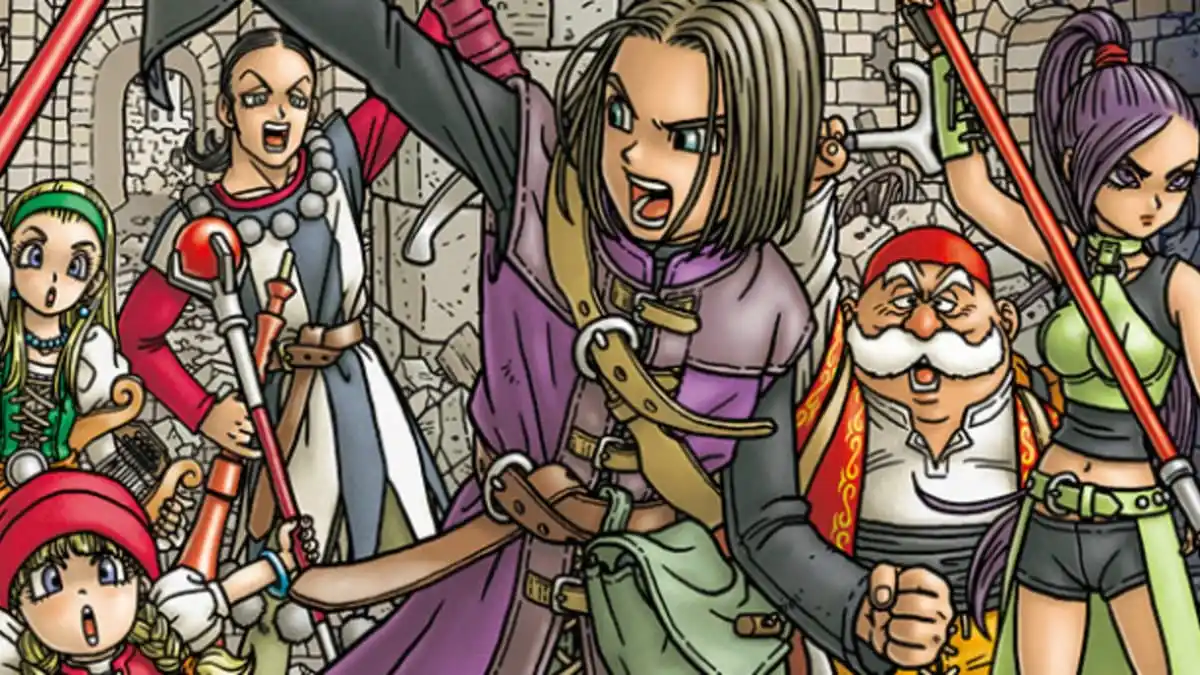



Published: Jul 3, 2022 11:34 pm